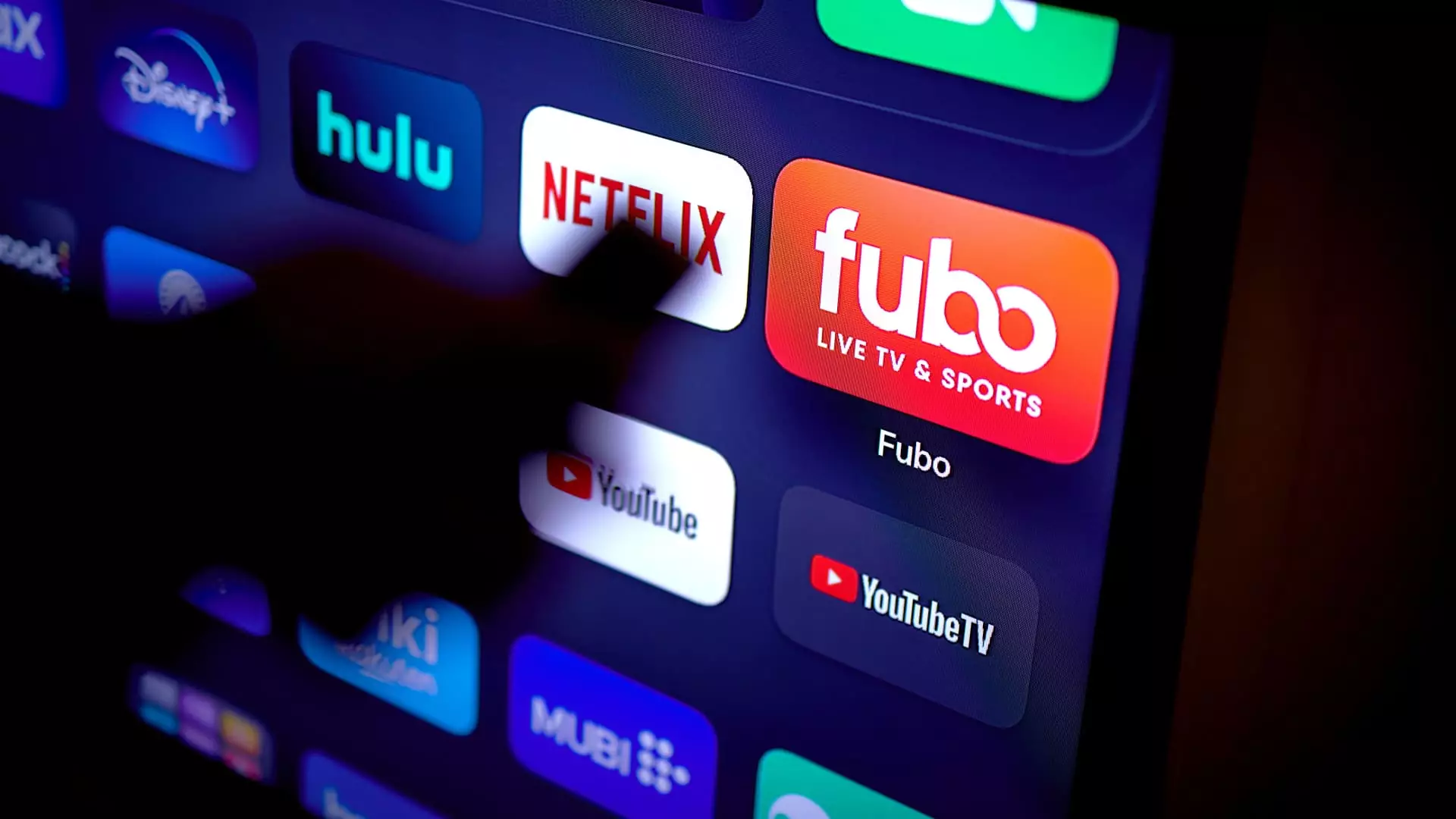The landscape of digital streaming continues to evolve dramatically, with significant mergers and acquisitions shaping the future of entertainment consumption. The recent announcement of Disney’s merger with Fubo has sparked conversations about the implications for subscribers, content offerings, and the overall market. With Disney poised to take a 70% stake in the combined company, which will operate under Fubo’s publicly traded status, the streaming world is witnessing a monumental shift. The impending union of Hulu+ Live TV and Fubo promises to create a formidable player in the highly competitive market of internet TV bundles, attracting attention not only for its potential subscriber growth but also for its implications on content distribution and competitive dynamics.
Disney’s strategic move to merge Hulu+ Live TV with Fubo comes in the wake of their history of providing diverse content that ranges from live sports to acclaimed original series. This blend allows the new entity to appeal to a broad spectrum of viewers, merging Fubo’s sports-centric subscribers with Hulu’s expansive entertainment library. During the investor call, Fubo’s CEO, David Gandler, emphasized the retention benefits of integrating Hulu+ Live TV into the Hulu app, outlining a vision forward that provides both choice and enhanced value for users. The anticipated synergy between these services, according to Gandler, is likely to streamline operations and bolster user retention while maintaining separate channels for both platforms for the time being.
Investors welcomed the news enthusiastically, leading to a dramatic surge in Fubo’s stock price, illustrating strong confidence in the strategic direction post-merger conclusion. As both companies approach the finalization of this arrangement in the next 12 to 18 months, the excitement is palpable and reflects optimism regarding their combined market potential.
Combining Hulu+ Live TV and Fubo will yield a subscriber base of approximately 6.2 million, a significant draw for current and potential users. Existing Hulu+ Live TV subscribers will still access their favorite live channels through the Hulu app, while new Fubo offerings promise enriched content primarily focused on sports and news. The intricate dance of maintaining distinct identities while leveraging synergies raises questions about how consumer choices will be influenced by this merger.
For Fubo, which currently boasts around 1.6 million subscribers, the merger signals a shift in its content strategy to broaden its appeal beyond sports enthusiasts. Historically, Fubo has carved a niche by offering a variety of regional sports networks, and their decision to drop entertainment channels has raised some eyebrows. The impending integration may alter this approach as the company seeks to balance its lineup, potentially drawing entertainment-oriented subscribers who desire a comprehensive viewing experience.
Fubo’s lawsuit against Disney and its collaborators—Fox and Warner Bros. Discovery—regarding the proposed sports-centric streaming service, Venu, highlights the competitive tensions inherent in the industry. Crucially, the settlement reached allows Venu to move forward while also addressing Fubo’s concerns about potential anti-competitive behaviors. This development illustrates the complex web of relationships and rivalries within the streaming marketplace, where content control and distribution partnerships dictate success.
Disney’s significant pull in media rights, controlling a substantial share of U.S. sports broadcasting, underscores its dominance and the challenges smaller entities face in carving out a foothold in this landscape. Fubo’s alignment with Disney offers more than just subscriber growth; it provides renewed leverage in negotiations with content distributors—a key aspect needed in navigating the evolving dynamics of live sports access at a time when market competition remains fierce.
As the merger inches closer to fruition, the prospects for both Disney and Fubo appear strengthened. The immediate attainment of cash flow positivity for Fubo post-merger represents an encouraging sign that the partnership might yield quicker financial returns. This not only reinforces the viability of the combined platform but also positions Fubo as a key player amongst other streaming options like YouTube TV.
Moreover, the expansion of content offerings, especially with the new carriage agreements facilitating access to Disney networks, could ignite a new enthusiasm for sports broadcasting. The potential for launching innovative streaming solutions inclusive of diverse content is compelling; however, it will ultimately depend on how well Fubo and Disney maneuver through the complexities of audience preferences and industry competition.
The merging of Disney’s Hulu+ Live TV with Fubo marks a pivotal moment in the evolution of streaming services. As these two giants prepare to amalgamate their strengths, the impact on subscribers, content diversity, and market competition will be closely scrutinized. For the time being, both platforms remain separately functional, but the promise of a robust combined offering suggests exciting developments on the horizon for avid streamers. As the situation unfolds, industry watchers will undoubtedly keep a keen eye on how this merger could redefine the streaming experience for millions of viewers.

